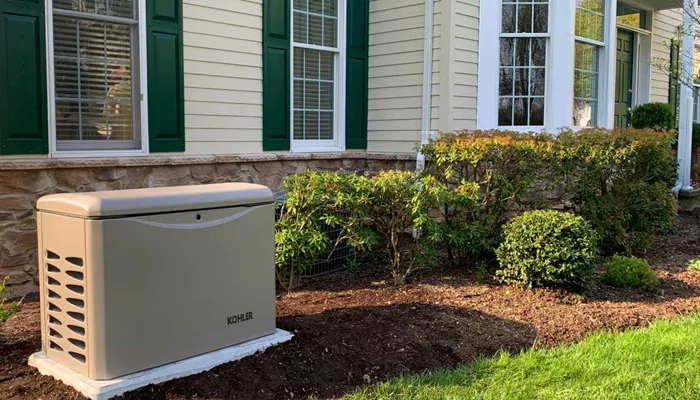A home generator is a valuable investment, especially during power outages. But like any electrical appliance, it has a limited lifespan. Understanding how long a generator lasts and what factors affect its longevity can help you make informed decisions about maintenance and replacement.
In this article, we’ll explore the average lifespan of different types of home generators, key factors that influence durability, and maintenance tips to extend their life.
Types of Home Generators and Their Lifespans
Different generators have varying lifespans based on their design, fuel type, and usage. Here are the most common types:
Portable Generators
Average Lifespan: 1,000 to 2,000 hours of use
Portable generators are smaller, less expensive, and ideal for temporary power needs. However, they have a shorter lifespan because they are typically used in harsh conditions and may not receive regular maintenance.
Inverter Generators
Average Lifespan: 3,000 to 5,000 hours
Inverter generators are more efficient and quieter than traditional portable models. Their advanced electronics and better fuel efficiency contribute to a longer lifespan.
Standby (Whole-House) Generators
Average Lifespan: 10,000 to 30,000 hours
Standby generators are permanently installed and automatically turn on during outages. They are built with heavy-duty components, making them last significantly longer than portable models.
Diesel Generators
Average Lifespan: 15,000 to 30,000 hours
Diesel generators are known for their durability and efficiency. They are commonly used in industrial settings but can also serve as reliable home backup power sources.
Key Factors That Affect Generator Lifespan
Several factors determine how long your generator will last:
Build Quality and Brand
High-quality generators from reputable brands (like Generac, Kohler, or Honda) often last longer due to superior materials and engineering.
Maintenance Routine
Regular oil changes, air filter replacements, and spark plug inspections are crucial. Neglecting maintenance can shorten a generator’s lifespan by 50% or more.
Usage Frequency
Generators used frequently (e.g., daily in off-grid homes) wear out faster than those used occasionally during emergencies.
Fuel Type
Gasoline: Shorter lifespan due to carburetor issues and fuel degradation.
Propane/Natural Gas: Cleaner burning, leading to less engine wear.
Diesel: Most durable but requires proper maintenance.
Environmental Conditions
Generators exposed to extreme heat, cold, or moisture may corrode or overheat, reducing their lifespan. Proper enclosures help protect them.
Load Capacity
Running a generator at full capacity for long periods increases wear. Ideally, operate at 50-80% of maximum load for best longevity.
How to Extend Your Generator’s Lifespan
Follow these maintenance tips to maximize your generator’s life:
Regular Oil Changes
Portable generators: Every 50-100 hours of use.
Standby generators: Every 100-200 hours or at least once per year.
Keep Fuel Fresh
- Use fuel stabilizers for gasoline generators.
- Drain old fuel if the generator won’t be used for months.
Clean Air Filters
Clogged filters reduce efficiency and strain the engine. Replace or clean them every 50-200 hours.
Test Monthly
Run standby generators for 15-30 minutes monthly to keep components lubricated and detect issues early.
Store Properly
- Keep portable generators in a dry, covered area.
- Use a weatherproof enclosure for standby units.
Schedule Professional Servicing
Annual inspections by a certified technician ensure optimal performance.
Signs Your Generator Needs Replacement
Even with proper care, generators eventually wear out. Watch for these warning signs:
Frequent breakdowns : If repairs become too common, replacement may be more cost-effective.
Excessive smoke or strange noises : Indicates internal engine damage.
Difficulty starting : Could mean worn-out components.
Reduced power output : Struggling to handle usual loads.
Conclusion
A home generator’s lifespan depends on its type, maintenance, and usage. Portable models may last 1,000-5,000 hours, while standby generators can exceed 20,000 hours with proper care. By following a strict maintenance routine and monitoring performance, you can ensure your generator serves you reliably for years.
Investing in a high-quality generator and taking preventive measures will save you money in the long run and keep your home powered during emergencies.
Would you like additional details on specific generator models or troubleshooting tips? Let us know in the comments!

